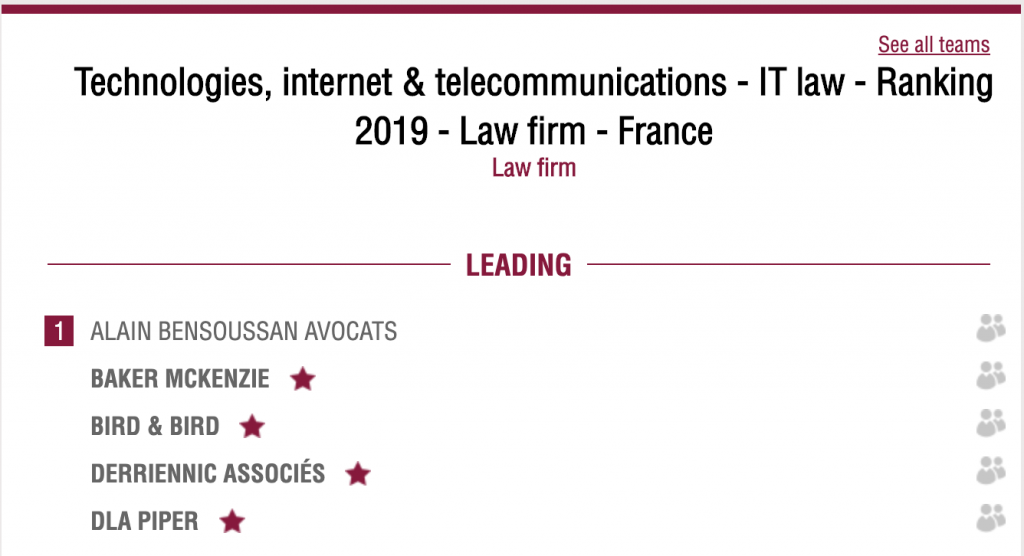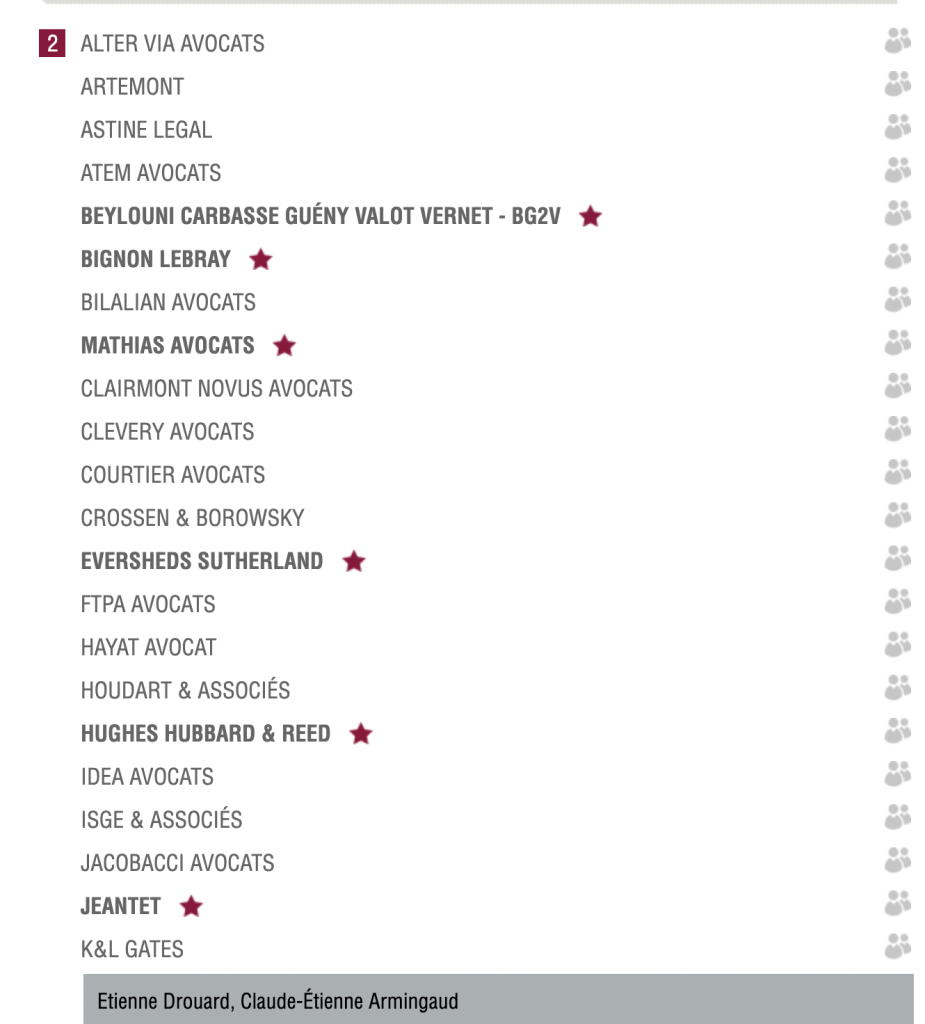Les 12 et 13 février 2020, l’IAPP organise sa conférence “Data Protection Intensive: France” — retrouvez nous lors du panel “Global Developments: CCPA and Beyond” avec Delphine Charlot de Mastercard et les meilleurs moments ci-dessous:
(more…)IAPP Data Protection Intensive France #DPI20
February 13th, 2020 | Posted by in Communication | Conference | Europe | France | Privacy | World - (0 Comments)🇺🇸 IAPP Data Protection Intensive France – Global Developments: CCPA and Beyond
February 4th, 2020 | Posted by in Conference | Data Transfer | Europe | France | internet | Legislation | Privacy | World - (0 Comments)The California Consumer Privacy Act of 2018 (CCPA) stands to radically change the way organisations throughout the United States, and even the world, handle personal data. Coming into force on 1 January 2020, CCPA has motivated other U.S. states such as Washington and Texas to move toward having their own privacy laws. Increasingly, pressure is building in Washington, DC, to advance federal privacy legislation, both on the domestic and international scene. In addition to Japan obtaining a GDPR-adequacy recognition (followed soon by Korea and India), Brazil has adopted its General Data Protection Act (GDPA) which is heavily inspired by the EU GDPR and will come into force in August 2020. In this session, hear about the new laws and legislative initiatives, how they will change the way you do business internationally and how to get prepared.
Along with Delphine Charlot, CIPP/E, Senior Counsel, Privacy and Data Protection, Mastercard
🇺🇸 Key changes to the AV regulatory framework and their effect on AV developments in France and the EU, The Future of Transportation World Conference 2019
December 10th, 2019 | Posted by in Artificial Intelligence | Conference | Connected Cars | France | IT | Legislation | Non classé | Privacy - (0 Comments)
More information on the Future of Transportation World Conference 2019 website.
The Privacist – Volume 1
October 8th, 2019 | Posted by in Communication | Europe | France | Press | Privacy - (0 Comments)Brexit: Deal Or No-Deal? Data is the Question
With the Brexit deadline looming ahead on 31 October 2019, the situation seemingly reaches new levels of uncertainty every day. Last week, the U.K. Supreme Court’s eleven judges unanimously ruled that Prime Minister Boris Johnson’s decision on 9 September 2019, to prorogue Parliament was “unlawful and void.” Parliament will therefore carry on its Brexit discussions…with now only thirty days left to finalise a deal. Although Parliament, while still in session, passed a law to extend the Brexit deadline, such an extension would still require approval by the EU.
So how should companies prepare, on either side of the Channel (and beyond), in the coming months for the more-likely-by-the-day-scenario of No-Deal?
(more…)Regulating Connected and Autonomous Vehicles – A Blueprint for an AI Legal Framework
October 4th, 2019 | Posted by in Communication | Connected Cars | Ethics | Europe | France | IT | Legislation | Privacy - (0 Comments)
A French Revolution, at last?
Despite optimistic statements in 2016 on both sides of the Atlantic (in between the European Commission’s communication on connected cars for Europe, and the Obama administration’s Detroit Auto Show announcement), it would seem that some of the hype surrounding connected and autonomous vehicles (“CAVs”) faltered. One reason may be the desensitization of the general public, as the initially promised 2020 deployment is dawning without a hint of general commercial availability in sight. On the other hand, the intricacies of the regulatory frameworks at stake also hinder the development of consumer-ready offers.
More often than not, France is perceived as an administrative maze, yet may become (unexpectedly to some) a leader in the race to regulating this incoming industry. However, far more than being limited to the automotive industry, regulating CAVs will serve as the blueprint for an artificial intelligence (“AI”) legal framework.
(more…)AI & Society – What Artificial Intelligence for What Society Project?
July 4th, 2019 | Posted by in Artificial Intelligence | Conference | France | IT - (0 Comments)
View the summary of the conference on Viuz website (in French).
Successfully extracting the full potential from your data through optimal use of AI, 2nd Artificial Intelligence in Corporate Counsel & Law Practice, TBM Group
June 13th, 2019 | Posted by in Artificial Intelligence | Conference | Ethics | Europe | France | IT | Non classé - (0 Comments)Leaders League Ranking 2019 – Technologies, internet & telecommunications – IT law – France
June 1st, 2019 | Posted by in Communication | France - (0 Comments)K&L Gates ranked “Recommended – Band 2” with E. Drouard & Claude-Etienne Armingaud.
Source: Leaders League



Leaders League Ranking 2019 – Technologies, internet & telecommunications – Internet – France
June 1st, 2019 | Posted by in Communication | France | IT | Rankings | Software - (0 Comments)K&L Gates ranked “Highly Recommended – Band 1” with E. Drouard & Claude-Etienne Armingaud.

Source: Leaders League

